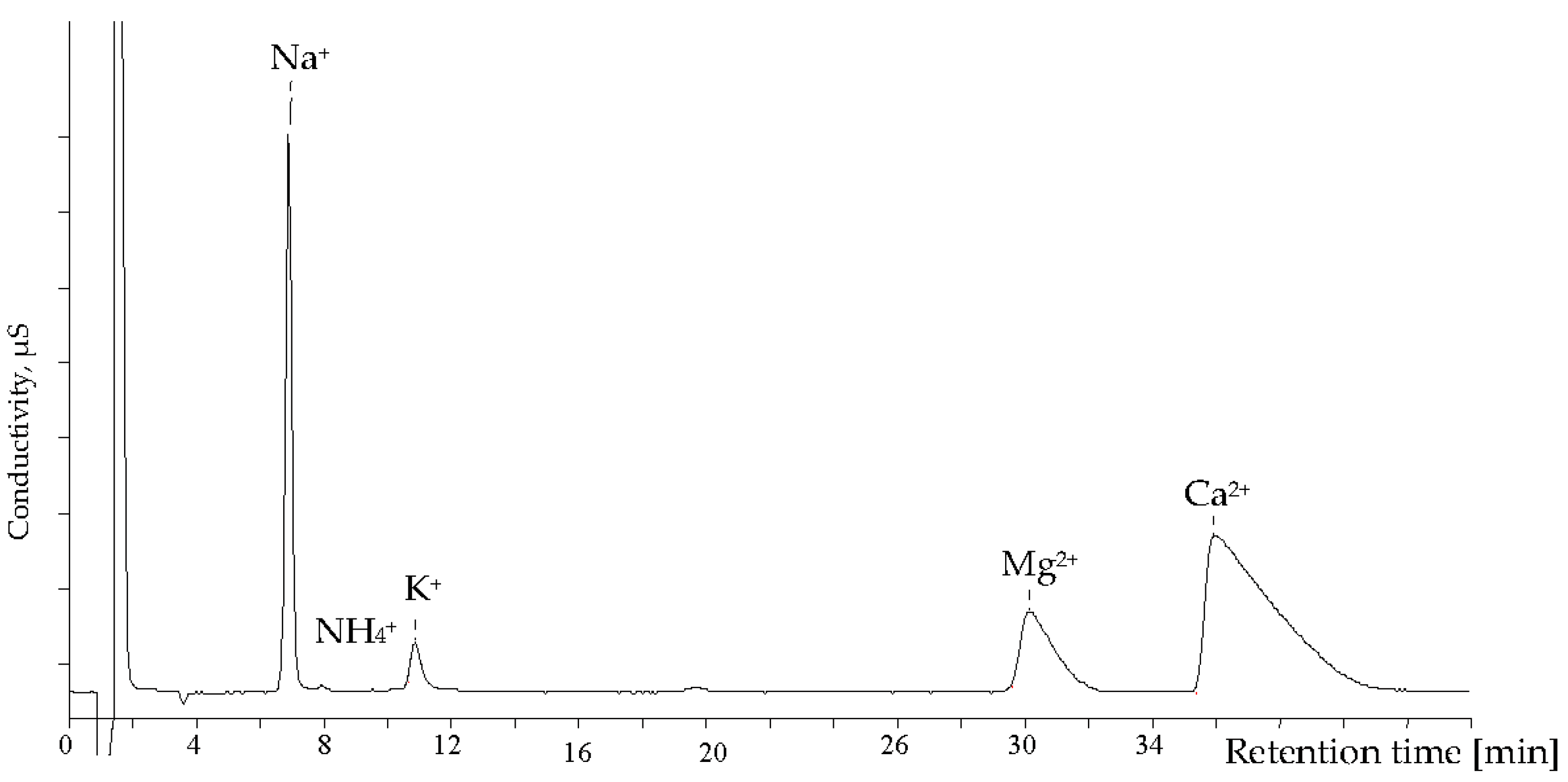Ion Chromatography Testing Service
Ion chromatography testing is an analytical technique based on ion chromatography, primarily used for the qualitative and quantitative determination of cations, anions, amines, carboxylates, and other polar small molecules in various samples. The fundamental principle involves separating target ions from complex matrices using ion exchange resins, followed by highly sensitive detection with a conductivity detector or UV detector. This method offers strong selectivity, high sensitivity, and excellent reproducibility.
Ion chromatography testing service is widely applied in environmental monitoring (e.g., detection of inorganic anions such as Cl⁻, NO₃⁻, and SO₄²⁻ in water), food safety (e.g., analysis of food additives and harmful ions), pharmaceuticals (e.g., monitoring electrolytes in injection solutions), materials chemistry (e.g., analysis of components in battery electrolytes), and biomedical research. It is an essential tool for the accurate analysis of water-soluble components in inorganic ions, organic acids, and biological samples.
Services at MtoZ Biolabs
Based on high-performance ion chromatography instruments, MtoZ Biolabs offers ion chromatography testing service for highly sensitive and high-resolution qualitative and quantitative analysis of common anions, cations, organic acids, and polar small molecules in water-soluble samples. The service includes sample pretreatment, ion separation, conductivity or UV detection, quantitative data analysis, and result reporting, ensuring accurate, stable, and reproducible concentration data. It is suitable for a wide range of research and testing applications in environmental, biological, food, and pharmaceutical fields.
Service Advantages
1. High Sensitivity and High Resolution
MtoZ Biolabs utilizes advanced high-performance ion chromatography systems to achieve precise detection and effective separation of ions, making it suitable for trace component analysis in complex matrices.
2. Wide Range of Sample Compatibility
The service supports various sample types, including water samples, soil extracts, biological fluids, food samples, and pharmaceutical solutions, meeting the needs of environmental monitoring, biomedicine, food safety, and other fields.
3. Comprehensive Detection Items
Capable of simultaneously detecting various anions (such as Cl⁻, NO₃⁻, SO₄²⁻), cations (such as Na⁺, K⁺, Ca²⁺, Mg²⁺), and organic acids, covering a wide range of routine and specialized ion analysis needs.
4. Stable Data with High Reproducibility
Utilizes standardized procedures and internal/external standard calibration to ensure excellent reproducibility and accuracy of results, making it suitable for both scientific research and quality control applications.
Applications
1. Environmental Monitoring and Water Quality Analysis
Ion chromatography testing service is widely applied for the detection of anions and cations in surface water, groundwater, drinking water, and wastewater, such as chloride, nitrate, and sulfate, to assess water quality and pollution levels.
2. Food and Beverage Component Analysis
By analyzing components such as inorganic salts, organic acids, and preservatives (e.g., nitrite, benzoic acid) in food products, Ion Chromatography Testing Service ensures product safety and formulation accuracy.
3. Pharmaceutical and Biological Sample Analysis
Suitable for detecting impurity ions in pharmaceutical raw materials and injectable solutions, as well as analyzing electrolytes or metabolic products in biological fluids such as blood and urine, supporting disease research and pharmacokinetic studies.
4. Ultrapure Water Testing in Electronics and Semiconductor Industry
Ion chromatography testing service can be used for the strict control and verification of trace ions in ultrapure water systems, ensuring chemical cleanliness in high-precision electronic manufacturing environments.
Case Study
1. Ion Chromatography Applications in Wastewater Analysis
This study aimed to evaluate the effectiveness and advantages of ion chromatography in wastewater analysis. The research focused on various types of wastewater samples from industrial, municipal, and agricultural discharges, using suppressed conductivity detection ion chromatography to systematically analyze common inorganic anions (such as Cl⁻, NO₃⁻, SO₄²⁻, PO₄³⁻) and cations (such as Na⁺, K⁺, Ca²⁺, Mg²⁺, NH₄⁺). By optimizing the chromatographic column, eluent composition, and gradient program, the study achieved high-resolution, low-detection-limit simultaneous multi-ion analysis. The results demonstrated good reproducibility and linearity, enabling effective discrimination of pollution sources and assessment of wastewater treatment efficiency. The study concluded that ion chromatography is a rapid, sensitive, and user-friendly tool for water quality testing, with broad application prospects in wastewater monitoring, pollution source tracing, and compliance evaluation.

Michalski, R. et al. Separations, 2018.
Figure 1. Chromatogram of Cations in a Municipal Waste Water Sample.
FAQ
Q1: What Are the Sample Submission Requirements?
A1: We recommend samples be aqueous solutions or liquids that are easily soluble in water. Samples should be filtered to remove suspended particles and must not contain high concentrations of organic solvents or strongly corrosive components. The concentration of target ions in the sample should fall within the instrument’s detection range.
Q2: How Are Sensitivity and Accuracy Ensured in the Testing?
A2: High-sensitivity conductivity detectors are used along with standard curve quantification. The detection limit can reach the ppb level, and the method provides excellent repeatability, making it suitable for both trace-level detection and routine ion concentration analysis.
MtoZ Biolabs, an integrated chromatography and mass spectrometry (MS) services provider.
Related Services
Structure&Component Analysis Services
Organic Element Analyzer (EA) Analytical Service
How to order?







